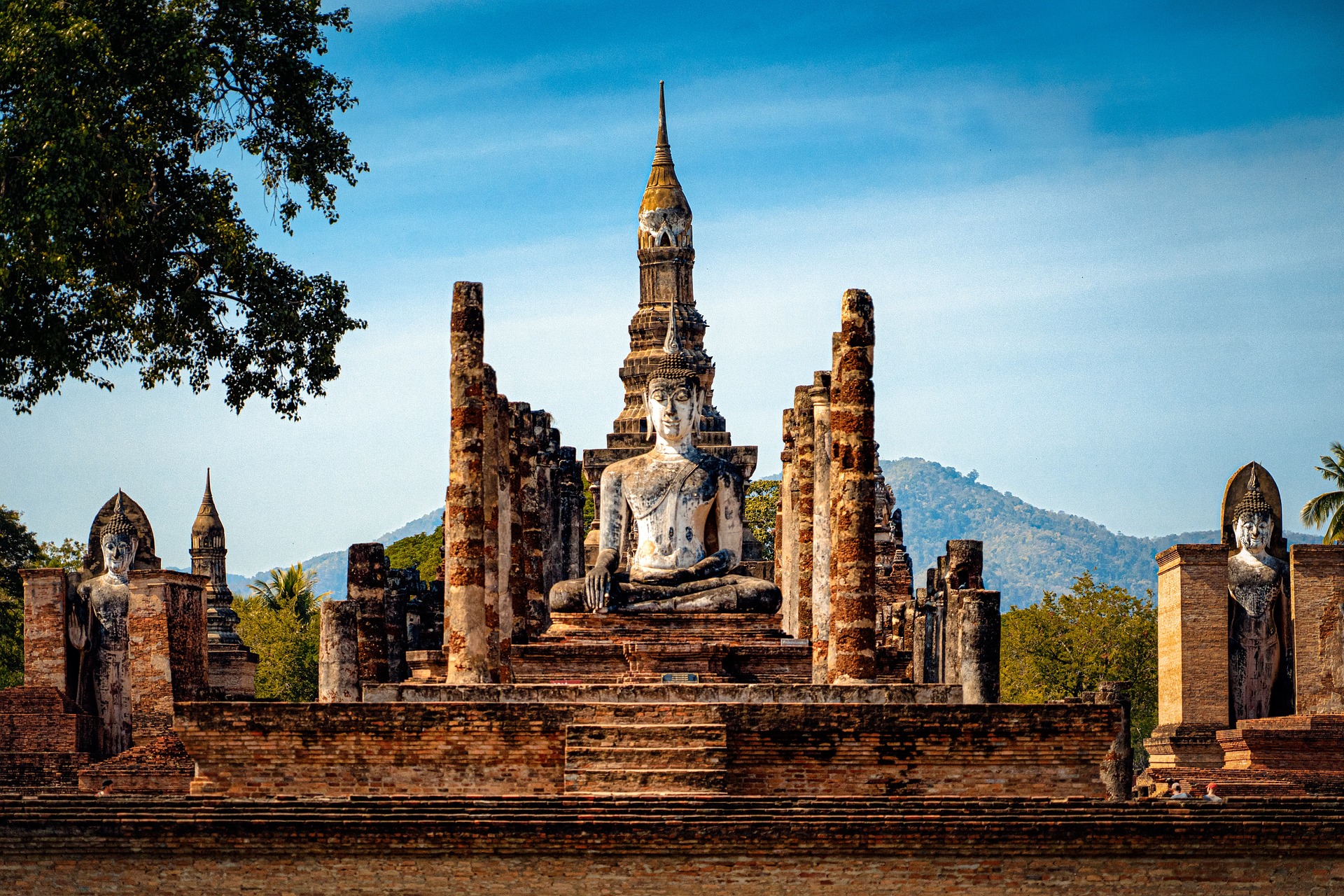Sukhothai Kingdom Thailand

The Sukhothai Kingdom was a powerful and prosperous kingdom located in what is now modern-day Thailand. It was founded in 1238 by King Sri Indraditya, who established the city of Sukhothai as the capital. The kingdom lasted from 1238 to 1438, during which it saw significant cultural and economic growth.
The Sukhothai Kingdom was one of the first Thai kingdoms to emerge after the Khmer Empire’s collapse, and its founders sought to establish a new identity for their people. They created their own language, which became known as the Thai language, and developed their own distinct style of art and architecture.
Under King Ramkhamhaeng, who ruled from 1279 to 1298, the Sukhothai Kingdom reached its peak. He was known for his just and benevolent rule and is often credited with establishing Thai identity and culture. During his reign, the kingdom saw significant economic growth, with the introduction of new agricultural techniques and the establishment of trade routes with neighboring kingdoms. He also developed a legal code, which included a set of moral precepts known as “The Three Seals of Dharma,” which emphasized the importance of justice, honesty, and compassion.
The Sukhothai Kingdom was also known for its art and architecture. The kingdom’s temples, such as Wat Mahathat and Wat Si Sawai, were built in the distinctive Sukhothai style, which featured lotus-bud-shaped chedis (stupas) and intricate carvings of Buddha images. The kingdom’s art also included bronze statues, such as the famous Walking Buddha statue, which is now housed in the National Museum in Bangkok.
In addition to its cultural achievements, the Sukhothai Kingdom was also known for its military might. The kingdom successfully repelled attacks from neighboring kingdoms and established its dominance over the region.
The Sukhothai Kingdom began to decline in the 14th century, due to internal conflicts and external pressures from neighboring kingdoms. In 1438, the kingdom was conquered by the Ayutthaya Kingdom, which became the dominant power in the region.
Despite its relatively short lifespan, the Sukhothai Kingdom left a lasting legacy in Thai history and culture. Its influence can be seen in the art, architecture, language, and culture of modern-day Thailand. The kingdom is also remembered for its emphasis on justice and compassion, which continues to be an important aspect of Thai culture today.
Text generated by ChatGPT. Image by Arek Socha from Pixabay
